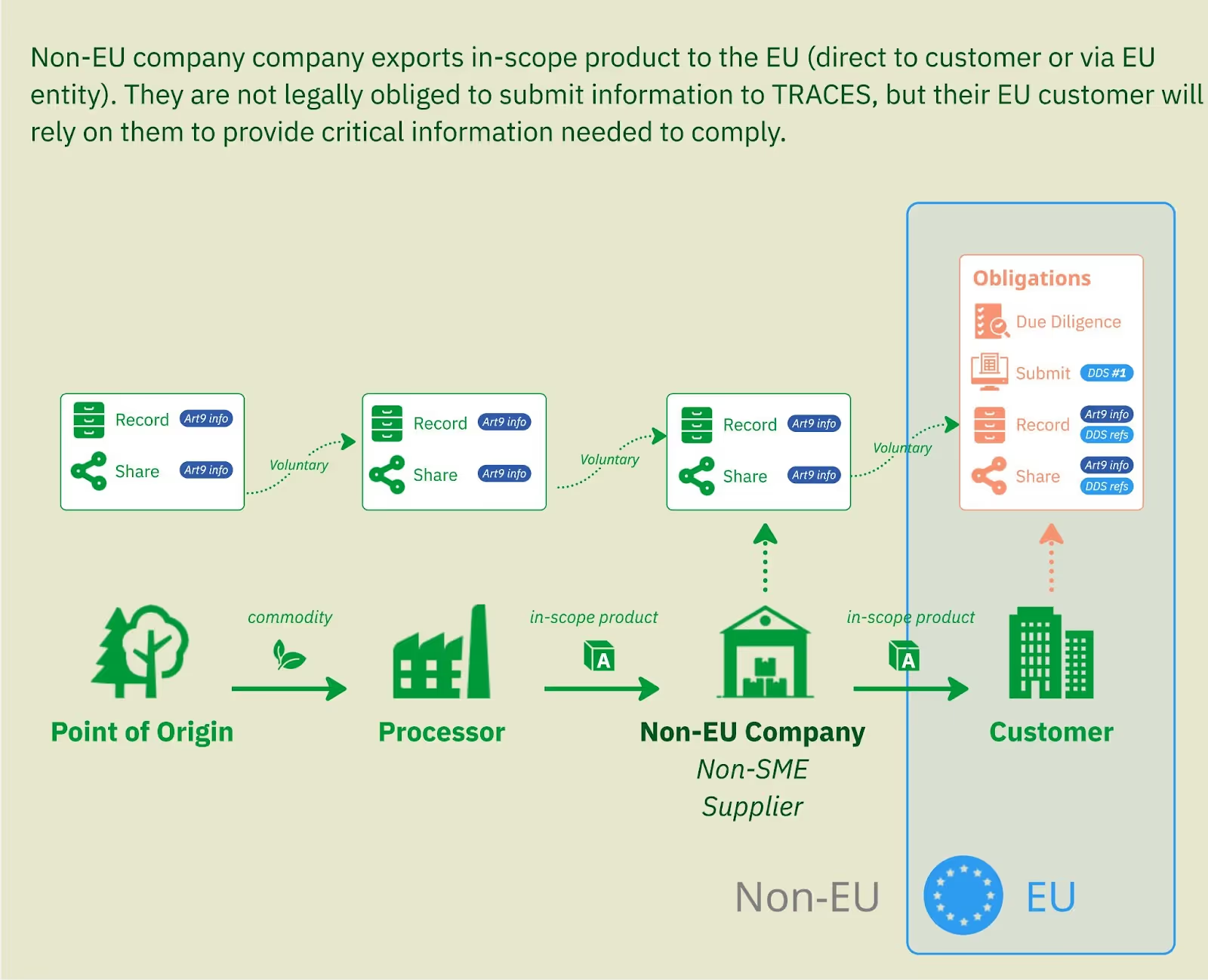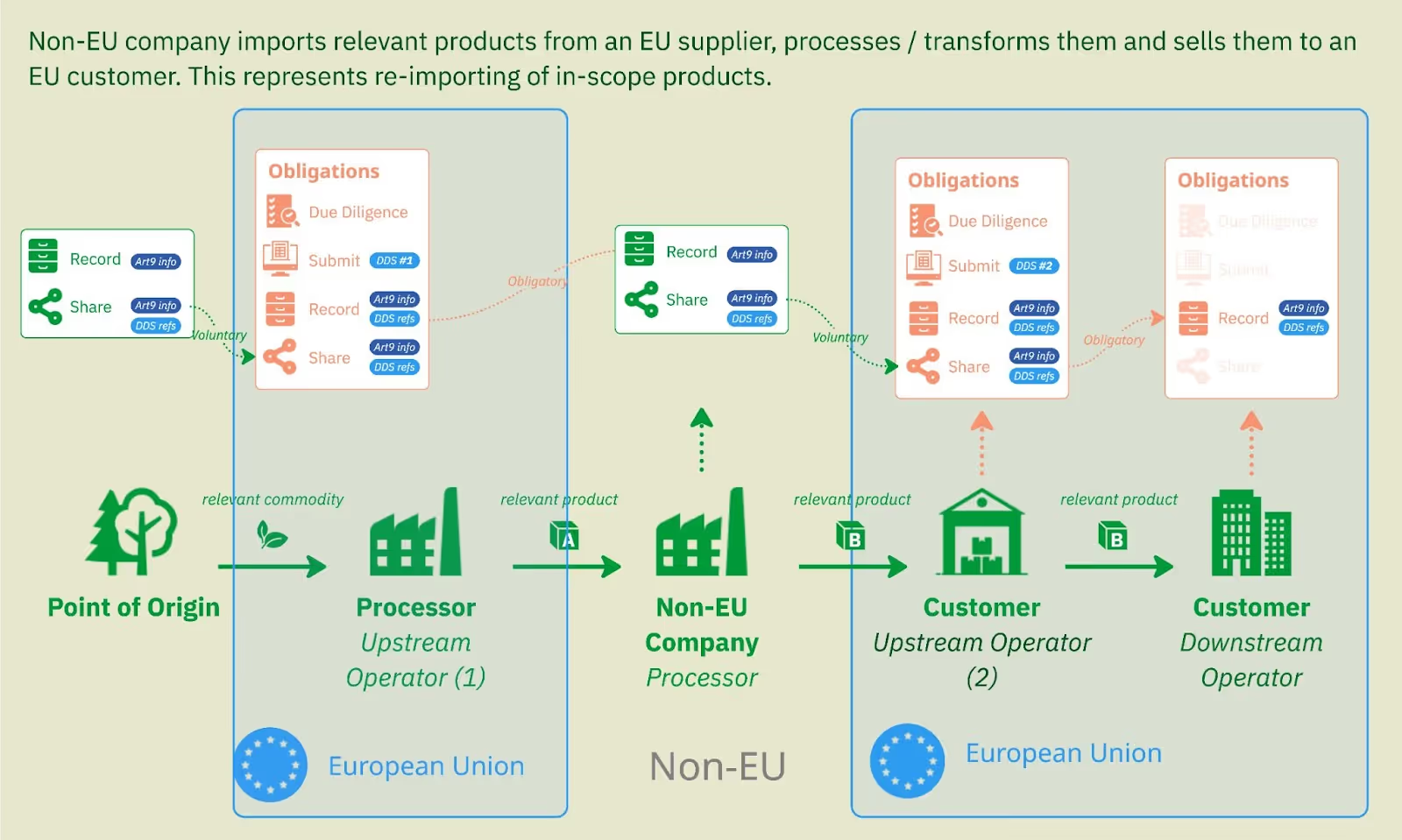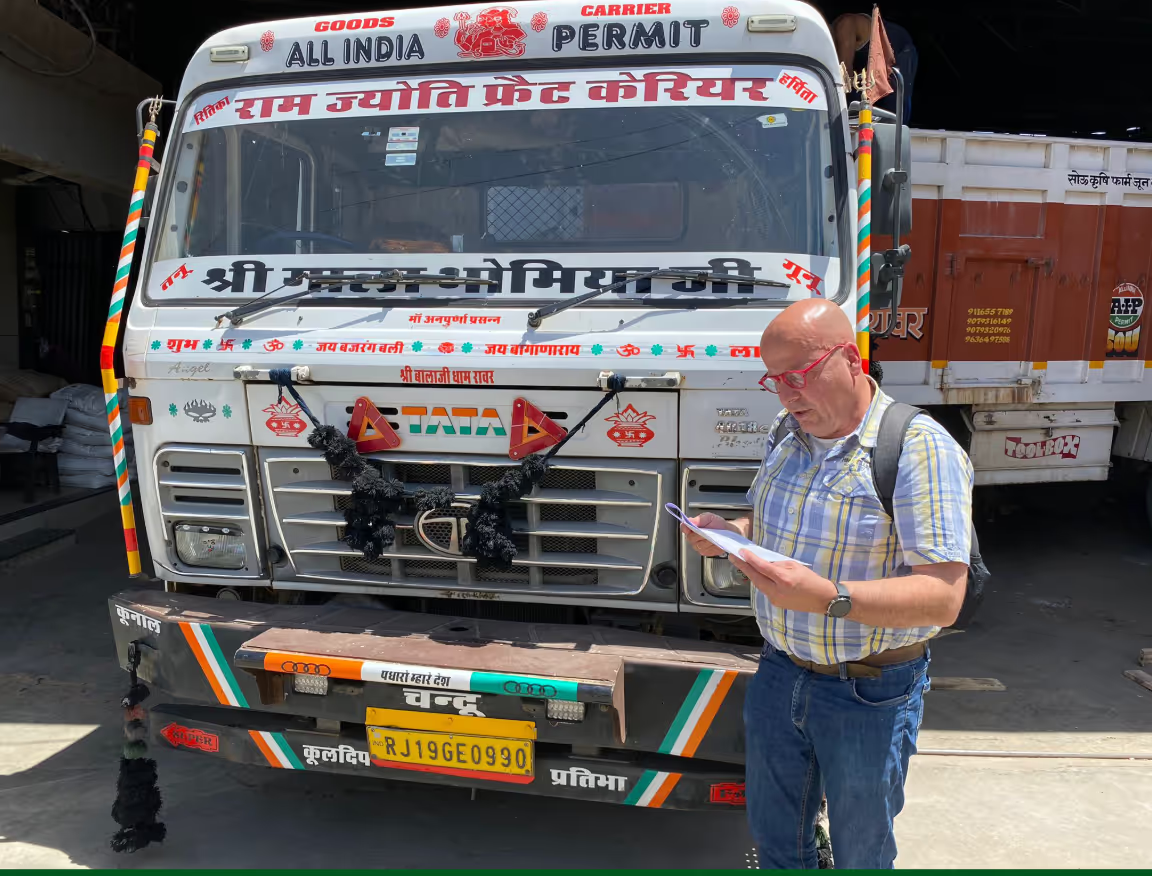The EU Deforestation Regulation (EUDR) marks a major step in Europe’s commitment to becoming climate-neutral by 2050 under the European Green Deal. While other, potential older regulations – like the EU Timber Regulation (EUTR), the UK Timber Regulation (UKTR), and the recently amended Australian Illegal Logging Prohibition – focused mainly on stopping illegal logging, they have not significantly reduced deforestation overall.
That’s because timber isn’t the biggest driver of forest loss. In reality, around 90% of global deforestation is caused by agricultural expansion – much of which remains legal under national laws. The climate impact is severe: deforestation accounts for about 15% of all human-made greenhouse gas emissions, and in some tropical regions, forests have degraded so badly that they now emit more carbon dioxide than they capture.
The EUDR aims to tackle this problem at its root. Rather than simply prohibiting illegal deforestation, it targets all deforestation linked to specific products, ensuring they are produced in accordance with both the local legal requirements (of the producer country) as well as the EU’s standard.
For exporters to the EU, there is a lot of misinformation and confusion about what they should and should not do to support their EU buyers to comply. The following section covers the basics of the EUDR as it applies to EU-entities - so skip to section 2 if you already have this covered!
1.1 Understanding the EUDR
Enacted in June 2023, the EUDR will be enforced from 1 January 2026. It requires businesses placing certain products on the EU market – or exporting them from the EU – to prove that these goods are free from deforestation and forest degradation. Companies must also demonstrate that production complied with the relevant legal standards in the country of origin.
Compliance depends on submitting a legally-binding Due Diligence Statement (DDS) and operating an effective due diligence system to support it. Without these, products cannot legally enter (or leave) the EU market.
1.2 Which Products Are Covered?
The regulation casts a wide net, applying to anyone trading in commodities such as palm oil, soy, coffee, cocoa, rubber, wood products, and leather, as well as items derived from these materials. There are no exemptions for business size or shipment volume – all companies, whether large multinationals or niche importers, are included.
1.3 What Must Be Included in a DDS?
A DDS is submitted via the EU’s TRACES system, used primarily by enforcement authorities. While access for other companies is limited, each DDS must include:
- Supplier name and place of production (including precise geolocation of farms or forest plots where the product originated from)
- Product information - description, classification codes, volume and species (where relevant)
- Reference and verification numbers from upstream suppliers’ DDS submissions (if relevant)
In submitting a DDS to TRACES, it effectively acts as a digital signature confirming negligible or zero risk of deforestation or forest degradation.
1.4 How Is This Different From Previous Regulations?
Unlike the EUTR, the EUDR requires geolocation data for all supply origins and mandates due diligence for every delivery or transaction. Its scope also extends to exports from the EU, not just imports.
Non-compliance can carry significant penalties – fines of up to 4% of annual EU turnover – and customs clearance is dependent on a valid DDS. Combined with its broader list of covered commodities, the EUDR dramatically increases the compliance bar for EU businesses directly.
2. What Does This Mean for Non-EU Companies?
Although non-EU companies are not directly regulated by the EUDR and the EU cannot impose fines on them, their customers within the EU must comply. Non-EU businesses cannot submit DDS information themselves, but EU buyers will still demand proof that their products are deforestation-free.
If non-EU suppliers are unable or unwilling to provide the required data, they risk losing access to EU markets. In short, compliance is becoming a de facto market entry requirement.
Here are 3 key scenarios we often see non-EU organisations facing when it comes to EUDR:
1 - When a non-EU supplier provides products to an EU customer which have no raw material inputs which come from the EU.

2 - When a non-EU supplier purchases in-scope raw materials from an EU supplier, transforms/processes the materials into a new in-scope product which is sold back into the EU.

3 - Possibly the most complex or frustrating of scenarios is when the non-EU company sells relevant products to a non-EU customer, whose own customers are in the EU. Often at the point of the sale between the non-EU supplier and their customer, it is unknown if the products will eventually make it into the EU market.
Even though the non-EU company and their direct customer do not need to legally comply with the EUDR, the end customer does, and therefore the burden of data collection and sharing is spread along the whole chain.

When Is Data Needed?
EU importers must have a DDS reference number for customs clearance, and full due diligence must be completed before goods are placed on the EU market. For non-EU suppliers, this means providing all required information early - ideally well before shipping - to avoid last-minute delays or customs issues.
For example, one organisation's container shipping times could take 35 days, so any goods dispatched after late November could land at EU ports right as the deadline kicks in. That means for them, aiming for EUDR compliance by 28th November 2025 is a smart move to avoid disruptions.
Stock positions also matter. The EUDR was enacted in June 2023 and we have been in the official ‘implementation phase’ since then. Goods harvested since 30 June 2023 and not placed on the market until 2026 will need to comply with the EUDR meaning full due diligence. Goods harvested prior to June 2023 and not placed on the market until 2026 can use an exemption Taric code (Y132), and goods harvested and placed on the market during the transition period will also be able to use a ‘conventional DDS’ issued by the EC.
As a non-EU supplier this means that your EU customers will be reviewing their inventory strategies now, to ensure they’re not caught with non-compliant goods in the pipeline come 1st January 2026. Suppliers should be prepared for increased requests related to risk assessments, geolocation data, and traceability well ahead of time.
Managing EUDR Compliance
Collecting and organising this level of data across suppliers, products, and transactions is challenging. Digital tools are essential for many companies navigating EUDR requirements.
Interu is a purpose-built platform designed to support compliance with EUDR, as well as the UKTR, EUTR, the Lacey Act and Australian Illegal Logging Prohibition . It enables companies to gather and structure supplier data, carry out risk assessments, and securely share validated information with customers, auditors, and authorities via TRACES.
The system clearly separates static, reusable information – such as supplier details and product specifications – from transaction-specific data like purchase orders and delivery routes. Supporting documents, such as declarations and certifications, are linked to ensure a complete, traceable record.
Looking Ahead
With enforcement starting in January 2026, the EUDR represents a fundamental shift in supply chain expectations. It’s not just another compliance hurdle – it redefines how companies prove their products are deforestation-free, both legally and environmentally.
Those who act early to adapt their systems and processes will be best positioned to maintain market access and protect their reputation.




.avif)
